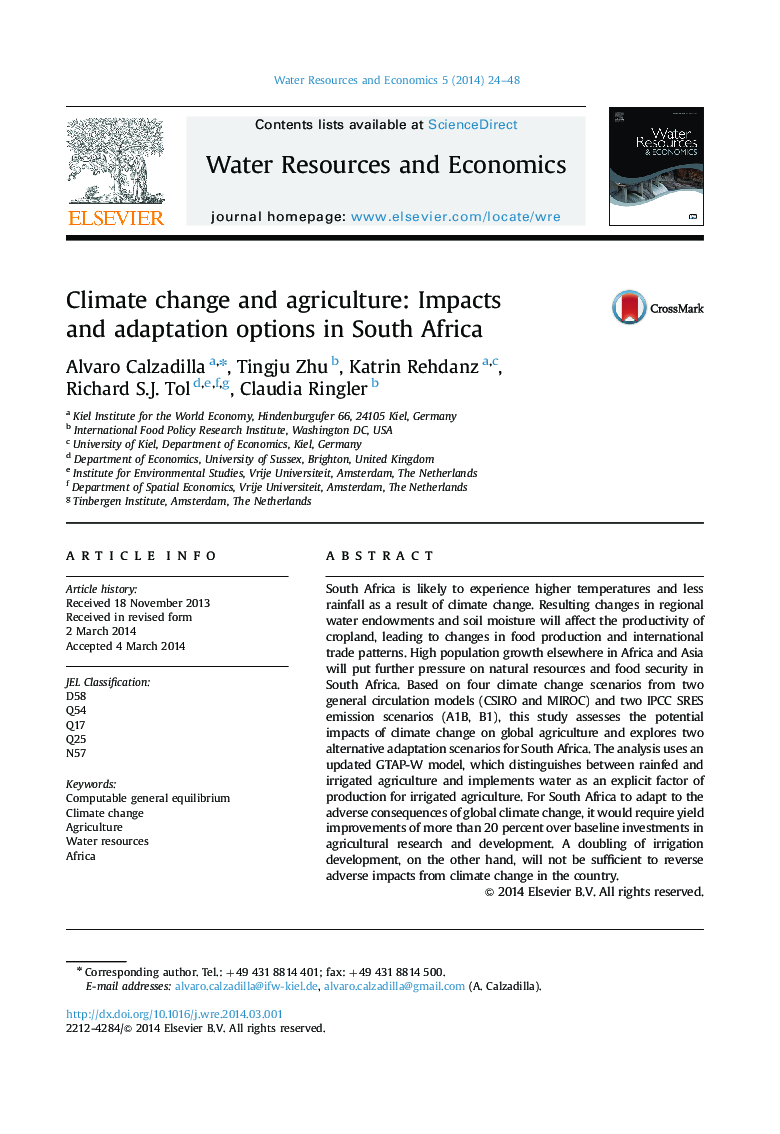| Article ID | Journal | Published Year | Pages | File Type |
|---|---|---|---|---|
| 990523 | Water Resources and Economics | 2014 | 25 Pages |
South Africa is likely to experience higher temperatures and less rainfall as a result of climate change. Resulting changes in regional water endowments and soil moisture will affect the productivity of cropland, leading to changes in food production and international trade patterns. High population growth elsewhere in Africa and Asia will put further pressure on natural resources and food security in South Africa. Based on four climate change scenarios from two general circulation models (CSIRO and MIROC) and two IPCC SRES emission scenarios (A1B, B1), this study assesses the potential impacts of climate change on global agriculture and explores two alternative adaptation scenarios for South Africa. The analysis uses an updated GTAP-W model, which distinguishes between rainfed and irrigated agriculture and implements water as an explicit factor of production for irrigated agriculture. For South Africa to adapt to the adverse consequences of global climate change, it would require yield improvements of more than 20 percent over baseline investments in agricultural research and development. A doubling of irrigation development, on the other hand, will not be sufficient to reverse adverse impacts from climate change in the country.
